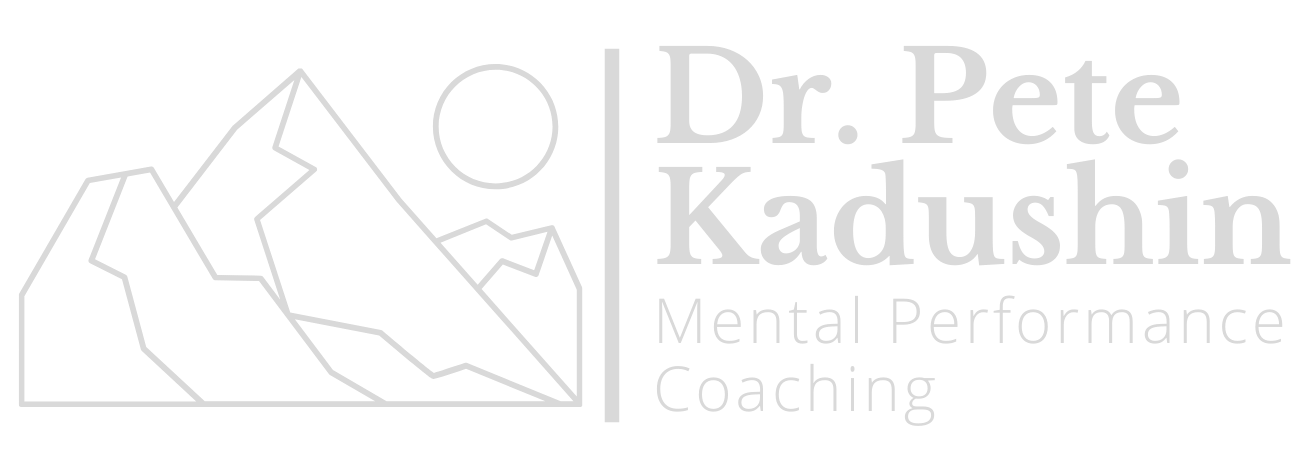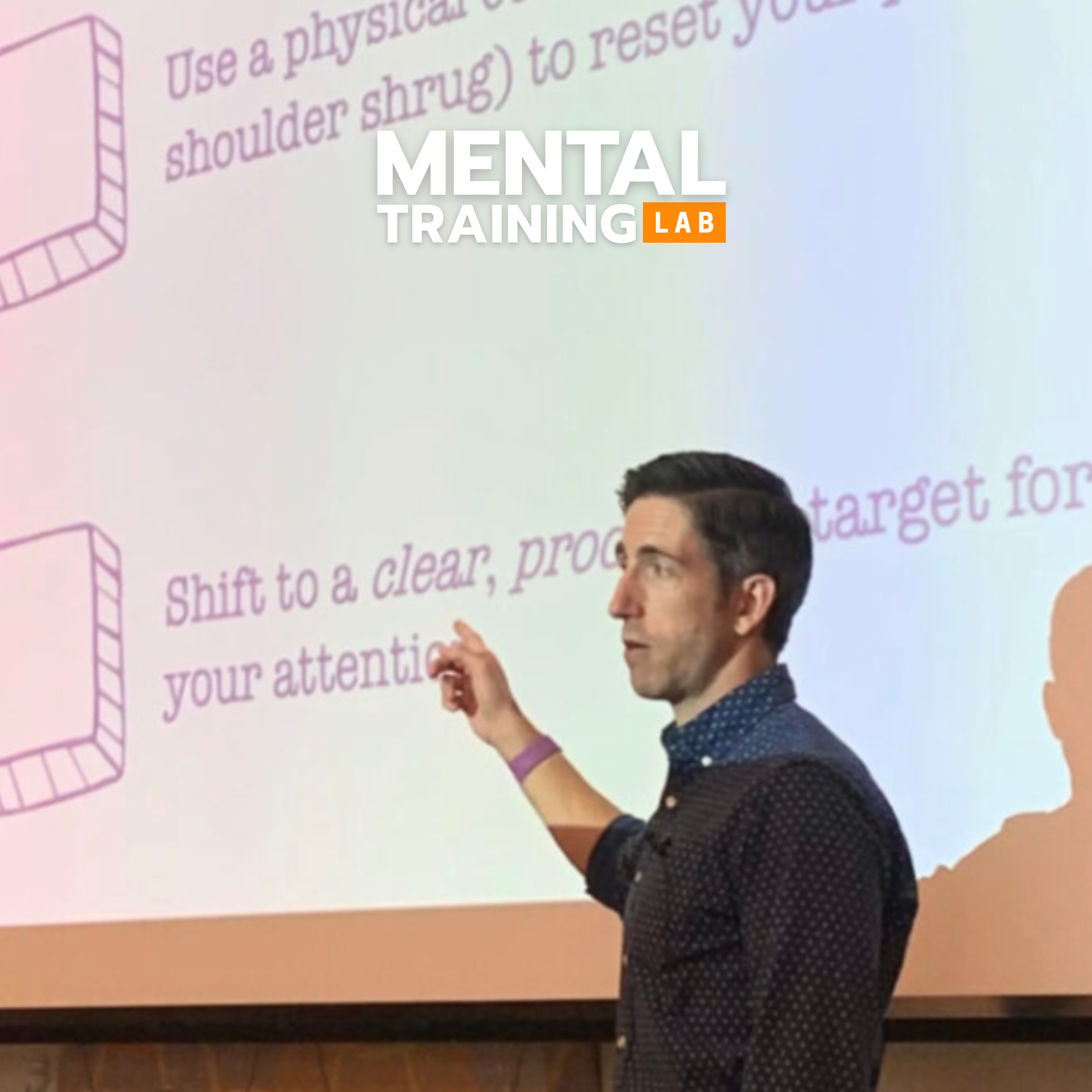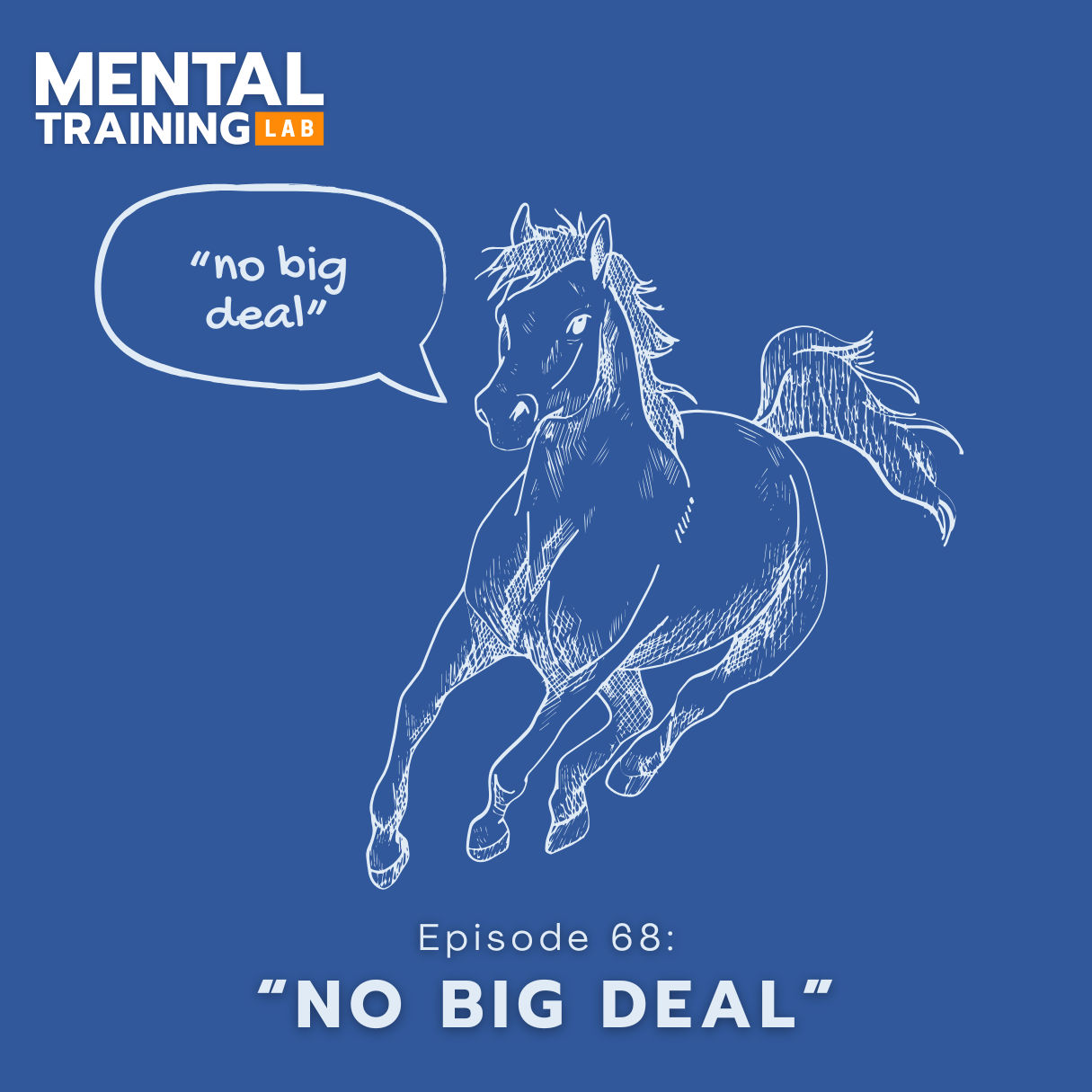Ep. 63: Practicing What We Preach: Dr. Ryan Hamilton on High Performance, Self-Awareness, and Pushing Limits
There’s a saying that’s floated around coaching circles for years: “You can’t give what you don’t have.”
It’s one of those lines that sounds simple, almost too simple, until you meet someone who truly lives it.
That’s how I’d describe Dr. Ryan Hamilton. He’s a professor of psychology at the University of New Brunswick, a Certified Mental Performance Consultant (CMPC), and the mental performance coach for the Tampa Bay Lightning and Hockey Canada. He’s also a husband, father, endurance athlete, and, as I learned in this conversation, a guy who decided to celebrate his birthday by running for 24 straight hours!
Ryan doesn’t just talk about mental performance, he practices it. And that’s exactly what drew me to have this conversation with him.
In a field where it’s easy to get caught up in theory, Ryan’s work reminds us that there’s important learning that happens in the doing: in the physical grind of the ultra-marathon, in the uncertainty of a new challenge, and in the moments where we risk failure to stay relevant and connected to the people we serve.
This blog breaks down the key insights from our conversation, what it means to “walk the talk” as coaches, consultants, and leaders, and ends with three actionable ways you can start integrating these lessons into your own life and work.
The Dual Life: Between the Lab and the Locker Room
Ryan wears two hats that don’t often fit neatly together: academic and practitioner.
On one hand, he’s an Associate Professor of Psychology, grounded in research, teaching, and mentorship. On the other, he’s working in the pressure-cooker world of professional sport, consulting with elite athletes and teams who expect results.
That tension, the space between theory and application, is where some of the most valuable lessons emerge.
When we talked, Ryan reflected on how those two roles constantly inform each other. His work in academia helps him think critically about behavior, systems, and performance. His time with athletes reminds him to keep things real, to translate research into language and action that actually move the needle.
But that duality also creates challenges.
Ryan shared how, at times, he’s wrestled with feelings of relevance, the question that so many high performers face, no matter the field:
“Am I still bringing value? Am I evolving at the same pace as the people and organizations I serve?”
It’s an honest question, and a vulnerable one. Because it’s not about insecurity; it’s about integrity.
When we care deeply about our work, we want to make sure we’re not just repeating patterns that once worked, we want to keep earning our credibility through growth, curiosity, and lived experience.
Practicing What We Preach
That brings us to the heart of the conversation: the idea of practicing what we preach.
As mental performance coaches, sport coaches, or leaders, we spend a lot of time supporting others through pressure, helping them embrace discomfort, and find meaning in struggle.
But how often do we put ourselves in that same position?
Ryan’s recent 24-hour ultra-marathon wasn’t just a personal challenge, it was a professional experiment. It was an opportunity to live inside the lessons he teaches.
He described the race not as a test of toughness, but as a mirror. A way to see what happens when theory meets reality, when the controlled environment of the classroom gives way to the chaos of fatigue, doubt, and the unknown.
“At some point,” he told me, “it stops being about the distance. It’s about whether you can stay present inside the suffering long enough to see what’s on the other side.”
And that’s the essence of what makes Ryan’s work powerful: he doesn’t shy away from discomfort. He seeks it out, studies it, and then distills what he learns into ideas and skills that others can use.
Leadership, Relevance, and the Value of “Being in the Arena”
There’s a line from Theodore Roosevelt’s “Man in the Arena” speech that feels especially relevant here:
“It is not the critic who counts; the credit belongs to the man who is actually in the arena.”
Ryan embodies that mindset.
He’s not content to sit in the stands, observing performance through academic detachment. He gets in the arena, sometimes literally, to understand the emotional and physical landscapes of the people he supports.
That willingness to stay connected, to be vulnerable, and to do the work himself makes his coaching credible. Because the athletes he works with can sense it, he’s not theorizing from a distance. He’s lived the discomfort, the fatigue, the uncertainty.
And that changes everything.
It’s the difference between saying “You can do hard things” and showing up as someone who’s way of being says “I’ve done them too”. The person across from you can feel the difference, even without you having to say so.
Growth as a Way of Being
What stood out most to me in this conversation was Ryan’s commitment to growth as a way of being.
He’s not chasing external validation or the capacity to tell his athletes he’s been a badass. He’s chasing learning.
When I thanked him at the end of our conversation, I said something that you can feel when you listen to the episode too:
“I’m really present to your commitment, as a way of being. You choose something, you pursue it fully, and you’re in service of not just learning about yourself, but helping others benefit from what you learn.”
That, for me, is at the heart of walking the talk.
It’s not about perfection or constant performance, it’s about showing up, staying curious, and using your own evolution to elevate others.
3 Actionable Steps to Practice What You Preach
So what can we, as coaches, leaders, or high performers, learn from Ryan’s approach?
Here are three ways to start living the lessons we teach.
1. Create Your Own Quest
You don’t need to run 24 hours to push your limits. But you do need something that stretches you.
A quest, a challenge, a project, a skill, forces you out of theory and into experience. It’s where insight becomes embodied.
Ask yourself:
What’s something I’ve been avoiding because it scares me a little?
Where am I preaching growth but not actually practicing it?
What’s one goal I can pursue that’s just beyond my current comfort zone?
Your quest doesn’t have to be physical. It could be emotional, intellectual, or creative. The point is to put yourself in a position where learning is unavoidable.
2. Build Reflection Into Your Routine
Growth doesn’t just happen from experience, it comes from reflecting on that experience.
Ryan shared how important reflection is in both his academic work and consulting. After big events, whether it’s a playoff series or a research milestone, he takes time to unpack what worked, what didn’t, and what he learned.
You can do the same.
After a major project or performance, take 10 minutes to work through Good, Better, How.
Build After Action Reviews into your personal or team workflow. Ask: “What went well? What could be better? How will we apply that?”
Treat reflection as an essential part of your training, not as a ‘nice to have’ some of the time.
Reps + Reflection + Rest = Growth.
3. Stay Grounded in Service
One of the through-lines in Ryan’s story is his commitment to service. Whether in academia or consulting, his work is about helping others grow.
That sense of service is also what protects us from burnout and ego. When our focus shifts from “How am I doing?” to “How can I help?”, the work becomes lighter and more meaningful.
If you’re feeling stuck, ask yourself:
Who am I serving right now?
How can I make my work about impact instead of image?
What would it look like to lead from generosity, even when there’s fear present?
Because here’s the paradox: when we shift our attention toward others, our own performance often improves. Service grounds us, clarifies our purpose, and helps us access flow more easily.
The Big Picture
At its core, this conversation with Ryan Hamilton is about alignment, between what we say and what we do, what we teach and what we live.
It’s about remembering that our credibility as leaders or coaches doesn’t come from perfection. It comes from practice. From stepping into the arena, facing our own discomfort, and using that process to become more empathetic, present, and effective.
If you’re reading this and wondering where to start, start small. Choose a quest. Reflect often. Serve others.
You don’t need to prove your worth, you just need to keep showing up for the work that matters most.
And maybe that’s the real lesson from Ryan’s story: growth isn’t an outcome. It’s a way of life.




